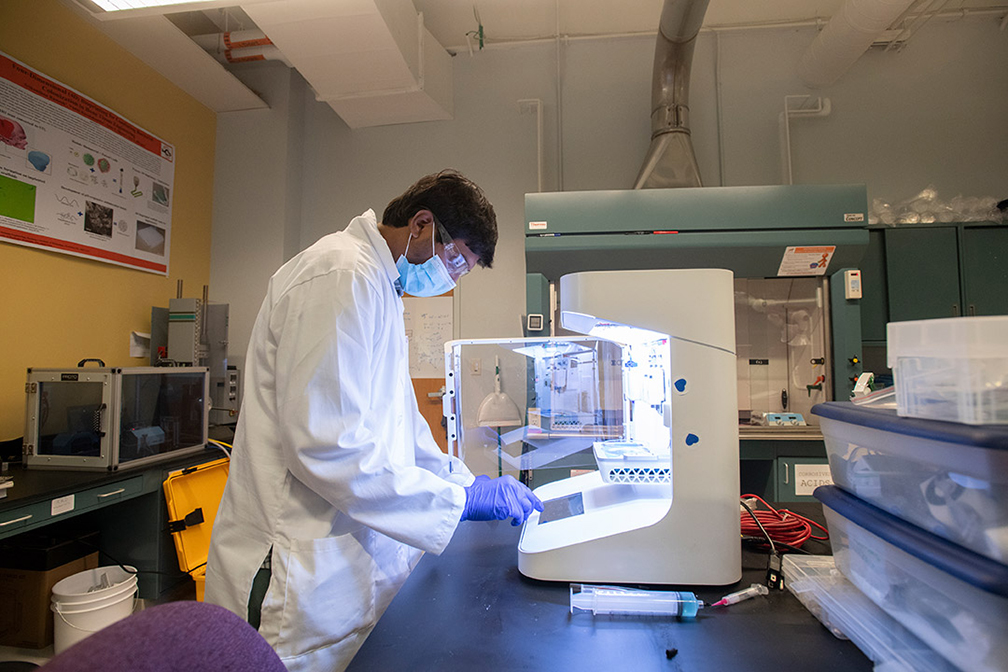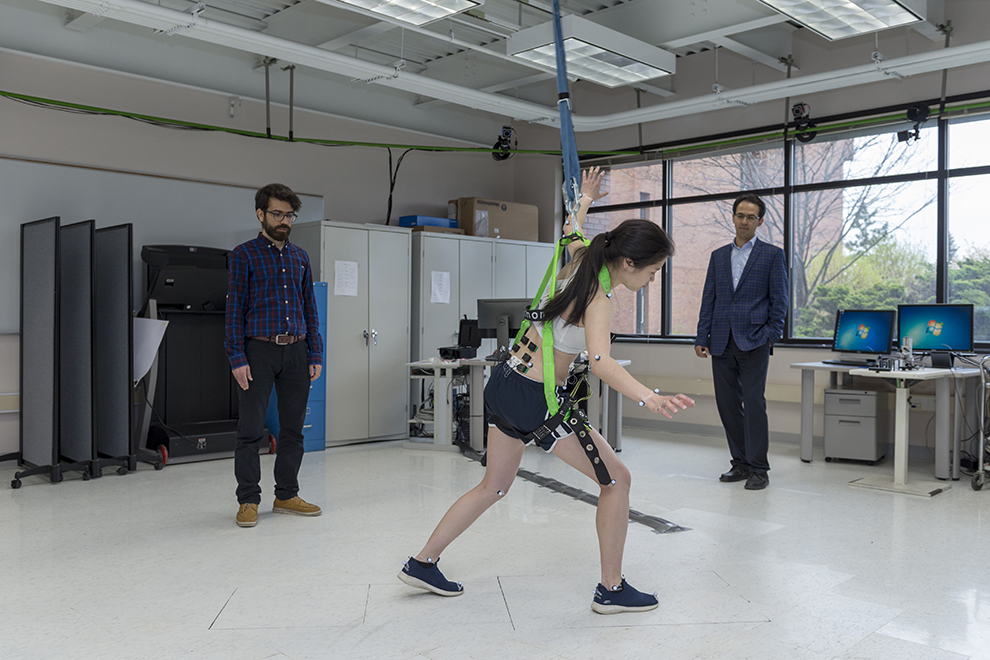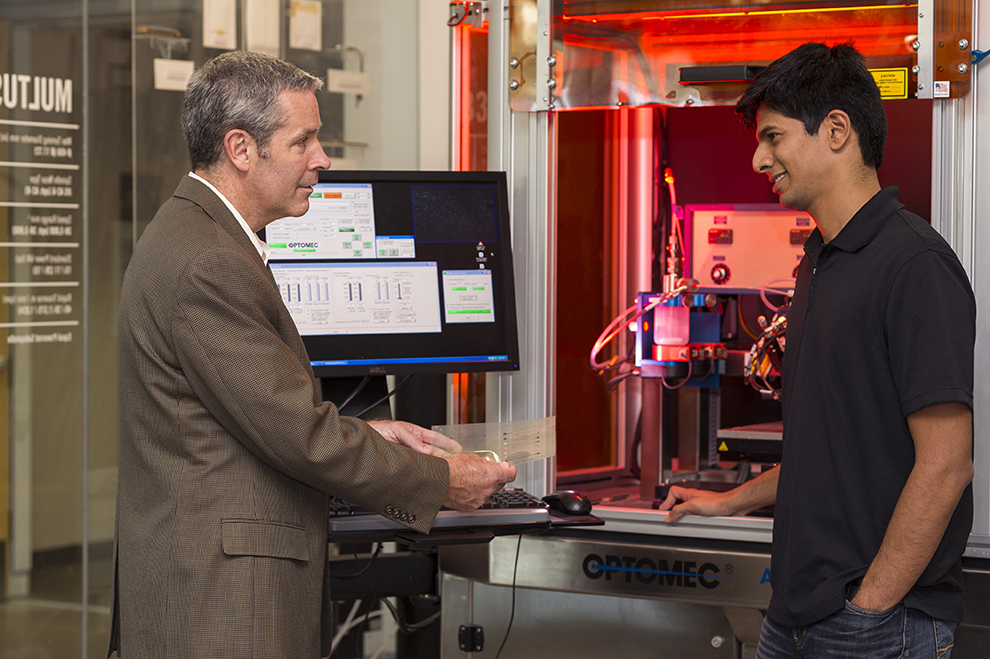Industrial and Systems Engineering Master of Science Degree
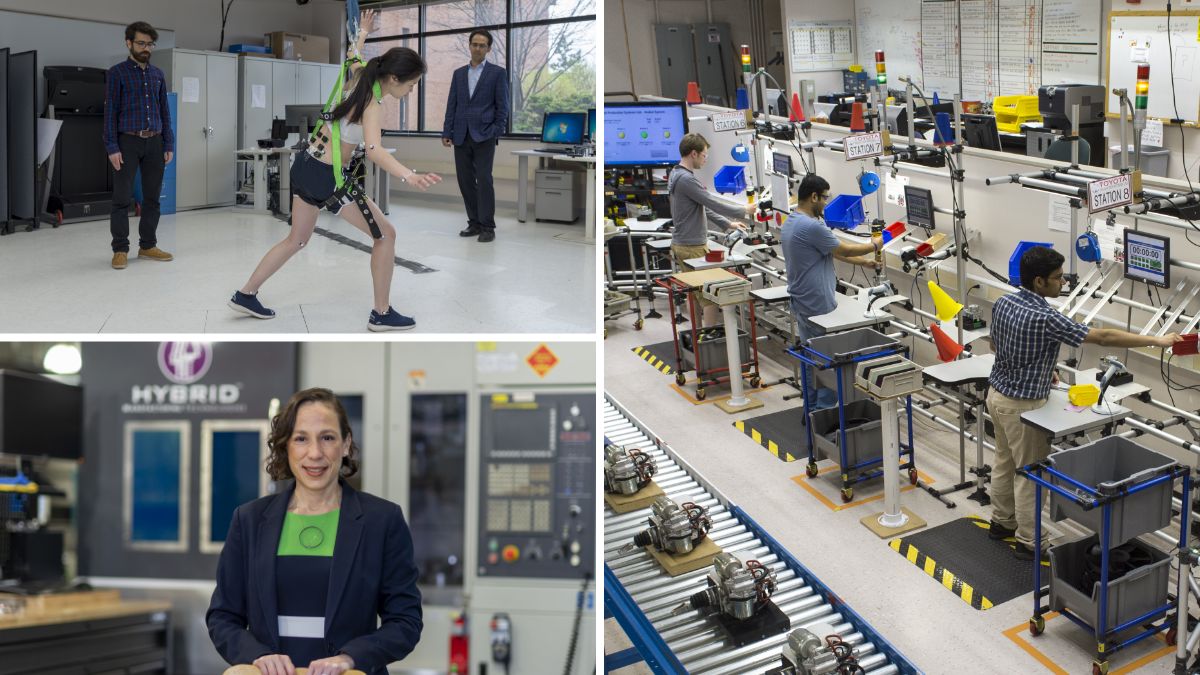
Industrial and Systems Engineering
Master of Science Degree
- RIT /
- Rochester Institute of Technology /
- Academics /
- Industrial and Systems Engineering MS
Overview for Industrial and Systems Engineering MS
Why Pursue an Industrial and Systems Engineering Master's at RIT?
STEM-OPT Visa Eligible: The STEM Optional Practical Training (OPT) program allows full-time, on-campus international students on an F-1 student visa to stay and work in the U.S. for up to three years after graduation.
Flexible Curriculum: Become an innovative problem solver through an exciting, flexible program that weaves research and optional co-op opportunities together.
Hands-on Experience: Learn to design, improve, and control complex systems to make them more profitable, practical, and flexible.
Top-Notch Faculty: Work side-by-side with experienced industrial and systems engineering faculty conducting research on contemporary problems.
Industrial engineering is a multi-disciplinary engineering field at the intersection of mathematics, computer science, and business. The program teaches you how to design the systems behind products and services that affect our everyday lives.
The industrial and systems engineering master’s offers you hands-on experiences designing, improving, and controlling complex systems to make them more profitable, practical, controllable, and flexible. As a result, you will become a problem-solver through a flexible program that leverages skills in advanced manufacturing processes, operations research, data analytics, human-computer interaction and augmented reality, product development, ergonomics and human factors, health care, logistics and supply chain management, and sustainable design and development.
With the industrial and systems engineering MS, you also will have the opportunity to explore different domain areas while working closely with faculty doing research on contemporary problems. We encourage all of our students to participate in cooperative education, which enables you to apply your skills in the real world before you graduate and helps to enhance your classroom learning once you return from co-op.
What is an Industrial Engineer?
An industrial engineer uses their knowledge of manufacturing and production systems, work efficiencies, energy, and natural resources and materials to develop, improve, and optimize integrated systems to become more efficient and sustainable. An industrial engineer improves how an organization integrates work processes, manufactures products, or provides services while also taking into account ergonomic analysis, logistics and supply chain management, and sustainable design and development with an overall systems approach.
RIT’s Industrial and Systems Engineering MS
Our systems and industrial engineering master’s degree allows you to customize your coursework while working closely with industrial and systems engineering faculty in a contemporary, applied research area. Faculty members are currently conducting applied project and research work in the areas of contemporary and advanced manufacturing processes/systems, ergonomic/biomedical analysis, human-computer interaction and augmented reality, logistics and supply chain management, health systems, energy systems, sustainable design and development, systems engineering/product development, and systems simulation.
-
Affordable Now. Valuable for Life.
Earn your master’s degree without the full price tag. With Master Up you can receive a 30% tuition scholarship for an RIT master’s degree.
-
Join us for Fall 2026
Many programs accept applications on a rolling, space-available basis.
Careers and Experiential Learning
Typical Job Titles
| Continuous Improvement Engineer | Operations Leadership Development Associate | Safety Specialist/Engineer |
| Vice President of Manufacturing | Industrial Engineer | Quality Engineer |
| Technology Energy Analyst | Sustainability Engineer | Human Factors Engineer |
| Systems Engineer |
Cooperative Education and Internships
What makes an RIT education exceptional? It’s the opportunity to complete relevant, hands-on engineering co-ops and internships with top companies in every single industry. At the graduate level, and paired with an advanced degree, cooperative education and internships give you the unparalleled credentials that truly set you apart. Learn more about graduate co-op and how it provides you with the career experience employers look for in their next top hires.
Cooperative education is strongly encouraged for graduate students in the industrial engineering master's program.
Featured Work and Profiles
-
RIT Professor Explores the Future of Immersive Tech
Assistant Professor Will Zhang joins Peggy Smedley to delve into the world of immersive technologies like AR, VR, and the metaverse, discussing their evolving role in manufacturing, long-term impacts,...
Read More about RIT Professor Explores the Future of Immersive Tech
Curriculum for 2025-2026 for Industrial and Systems Engineering MS
Current Students: See Curriculum Requirements
Students are also interested in
Admissions and Financial Aid
This program is available on-campus only.
| Offered | Admit Term(s) | Application Deadline | STEM Designated |
|---|---|---|---|
| Full‑time | Fall or Spring | Rolling | Yes |
| Part‑time | Fall or Spring | Rolling | No |
Full-time study is 9+ semester credit hours. Part-time study is 1‑8 semester credit hours. International students requiring a visa to study at the RIT Rochester campus must study full‑time.
Application Details
To be considered for admission to the Industrial and Systems Engineering MS program, candidates must fulfill the following requirements:
- Complete an online graduate application.
- Submit copies of official transcript(s) (in English) of all previously completed undergraduate and graduate course work, including any transfer credit earned.
- Hold a baccalaureate degree (or US equivalent) from an accredited university or college in engineering, mathematics, or science. A minimum cumulative GPA of 3.0 (or equivalent) is recommended.
- Submit a current resume or curriculum vitae.
- Submit a personal statement of educational objectives.
- Submit two letters of recommendation.
- Entrance exam requirements: GRE required
- Submit English language test scores (TOEFL, IELTS, PTE Academic, etc.), if required. Details are below.
English Language Test Scores
International applicants whose native language is not English must submit one of the following official English language test scores. Some international applicants may be considered for an English test requirement waiver.
Duolingo (DET): 130
IELTS: 6.5
LanguageCert Academic: 74
PTE Academic: 60
TOEFL: 88/4.5
International students below the minimum requirement may be considered for conditional admission. Deaf and hard-of-hearing test takers with significant hearing loss do not need to take the listening and speaking sections for the TOEFL and IELTS. Each program requires balanced sub-scores when determining an applicant’s need for additional English language courses.
How to Apply Start or Manage Your Application
Cost and Financial Aid
An RIT graduate degree is an investment with lifelong returns. Graduate tuition varies by degree, the number of credits taken per semester, and delivery method. View the general cost of attendance or estimate the cost of your graduate degree.
A combination of sources can help fund your graduate degree. Learn how to fund your degree
Accreditation
Research
The faculty and students in the Kate Gleason College of Engineering are engaging in numerous areas of research, which takes place across all of our engineering disciplines and often involves other colleges at RIT, local health care institutions, and major industry partners. Explore the college's key research initiatives to learn more about our research in:
Related News
-
December 19, 2025

RIT engineering professor is recognized for service to the simulation community
Michael Kuhl was recognized for his distinguished work over his 25+ year career including service as I-Sim president; WSC Board of Directors; WSC program chair, proceedings editor and mobile app chair, among others.
-
October 9, 2025

Career fair connects students with companies
Thousands of RIT students searched for co-ops and full-time employment at more than 230 local, regional, and national companies represented at the University-wide Career Fair on Oct. 8.
-
November 26, 2024
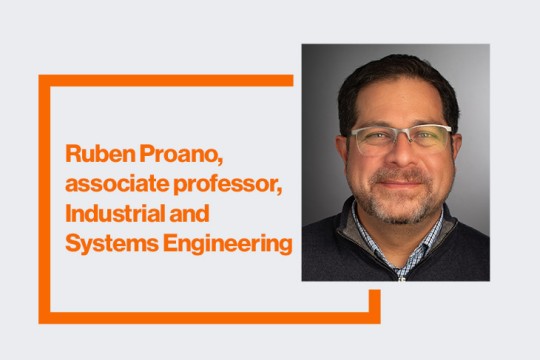
Ruben Proano invited to join World Health Organization’s technical advisory group
RIT researcher Rubén Proaño has joined the World Health Organization’s Technical Advisory Group on Market Access for Vaccines. He began his service during the advisory group’s November meeting in Geneva, Switzerland.
Contact
- Lindsay Lewis
- Senior Assistant Director
- Graduate Admissions
- Enrollment Management
- 585‑475‑5532
- lslges@rit.edu
- Ruben Proano
- Graduate Program Director, Industrial and Systems Engineering
- Department of Industrial and Systems Engineering
- Kate Gleason College of Engineering
- 585‑475‑4236
- rpmeie@rit.edu
Department of Industrial and Systems Engineering
















